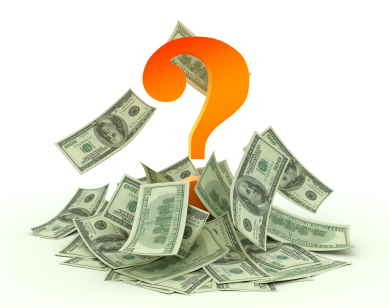I recently responded to a friend’s email and I realized it has some fantastic tips that every independent musician can use if they’re looking to take control of their music career, get their music licensed, or simply improve their music marketing. Here it is (edited for anonymity’s sake):
It is my personal view that musicians need to know that they are entrepreneurs, and not by choice!, with the industry the way it is currently.
The reality is you can do pretty much everything you need to except for have a lawyer review contracts – and even that you can learn a lot on your own (but seriously, always have a lawyer review). You may have already realized this.
So to get started, you should focus on areas where you think your music will excel – I’d recommend honing in on a specific media (ie: advertising, film, tv, video games). Each of them have their own plusses and minuses, however if you have a particular contact or know someone who works at the following (I just wrote a piece on this to my email newsletter (you can sign up here). It’s free but I try to provide real actionable advice for independent musicians just like you):
Advertising:
– Ad agency: Loads of folks work at these, you need to talk to individual ones. See the newsletter for specific titles, but friends are your BEST inroads.
– Brand: You want someone in the marketing department ultimately. Often times brands let the agency choose the music, however if it’s a music centric brand like Coke or Pepsi, they get more involved.
Film/Tv:
– For TV you’re looking for production companies that are working on particular TV shows – you can find these by watching the credits on any show that you think your music could fit with.
– Films are no trickier, check out Variety – you want the general status of the film to be in post production (where they typically are licensing the music).
Video Games:
– Most major video game companies have music departments that deal with licensing the music they want and hiring composers. For composing custom, you need to be in touch with the “audio” folks. For music, they’ll have separate people of varying titles. Some googling goes a long way
Also, if you have a bunch of scratch tracks that never turned into songs, or songs that were never released, I highly recommend digging them up. It’s nice to have more to offer. You can also mess around with cutting them down into 30 and 60-second versions.
If I were you, I’d start talking to your really good friends and see how many of them know someone at an agency, production company, or work in TV & film. You might be surprised. Then try to arrange a meeting with that person (or if you know someone directly, even better).
More questions? Let me know – and seriously, the newsletter will be useful to you in a lot of ways.
Also, I go into A LOT more detail about building genuine relationships and how to put your best foot forward when pitching yourself. I’ve also covered some great info on what to say when you find a great connection.
Again, you can sign up here.
 Today, I’m going to give you some ideas about who might be looking for music and where you can find them. Most of the information you need exists online as far as WHO you need to contact. Here’s a quick rundown of some GREAT resources.
Today, I’m going to give you some ideas about who might be looking for music and where you can find them. Most of the information you need exists online as far as WHO you need to contact. Here’s a quick rundown of some GREAT resources. 
 Video Games – Video games can be a bit trickier, but you have to remember that the people with the coveted positions as music producers and music supervisors have been interviewed, participated on panels, and generally are bombarded with enough attention that digging them up on Google is easy. Give LinkedIn’s search a shot, or try googling the video game company’s name along with “music supervisor” and see what you come up with.
Video Games – Video games can be a bit trickier, but you have to remember that the people with the coveted positions as music producers and music supervisors have been interviewed, participated on panels, and generally are bombarded with enough attention that digging them up on Google is easy. Give LinkedIn’s search a shot, or try googling the video game company’s name along with “music supervisor” and see what you come up with. One question has come up consistently over the years whenever artists come across a company like Pump Audio or Crucial Music. After reading through their sites an artist see the term “…represented on a non-exclusive basis…” and gets excited.
One question has come up consistently over the years whenever artists come across a company like Pump Audio or Crucial Music. After reading through their sites an artist see the term “…represented on a non-exclusive basis…” and gets excited.
 That said you may have 50 scratch tracks sitting around from 1994 and weirdly, people aren’t listening for that sweet Ace of Bass sound anymore. Or, you may be in a rock band but have a bunch of film trailer tracks that you did for fun that are just collected digital dust – upload away! In this case, it’s bonus money for songs you don’t really care about.
That said you may have 50 scratch tracks sitting around from 1994 and weirdly, people aren’t listening for that sweet Ace of Bass sound anymore. Or, you may be in a rock band but have a bunch of film trailer tracks that you did for fun that are just collected digital dust – upload away! In this case, it’s bonus money for songs you don’t really care about. But if I say “hey, I JUST released my new EP – it sounds awesome! I recorded in the same studio with the same engineers as Arcade Fire and it was produced by a guy who’s got 5 top fifty songs to his credit,” well, which one do you think sounds more expensive?
But if I say “hey, I JUST released my new EP – it sounds awesome! I recorded in the same studio with the same engineers as Arcade Fire and it was produced by a guy who’s got 5 top fifty songs to his credit,” well, which one do you think sounds more expensive?
 Shouldn’t independent artists be in frequent contact with their fans? Shouldn’t they seem prolific? Wouldn’t scheduling yourself to write and record music be an insanely useful exercise? So why bust your ass to save up $5K, take FOREVER to complete a project, then release it and act surprised that you don’t immediately gain fame and fortune?
Shouldn’t independent artists be in frequent contact with their fans? Shouldn’t they seem prolific? Wouldn’t scheduling yourself to write and record music be an insanely useful exercise? So why bust your ass to save up $5K, take FOREVER to complete a project, then release it and act surprised that you don’t immediately gain fame and fortune? The game has changed. Consider using a
The game has changed. Consider using a 